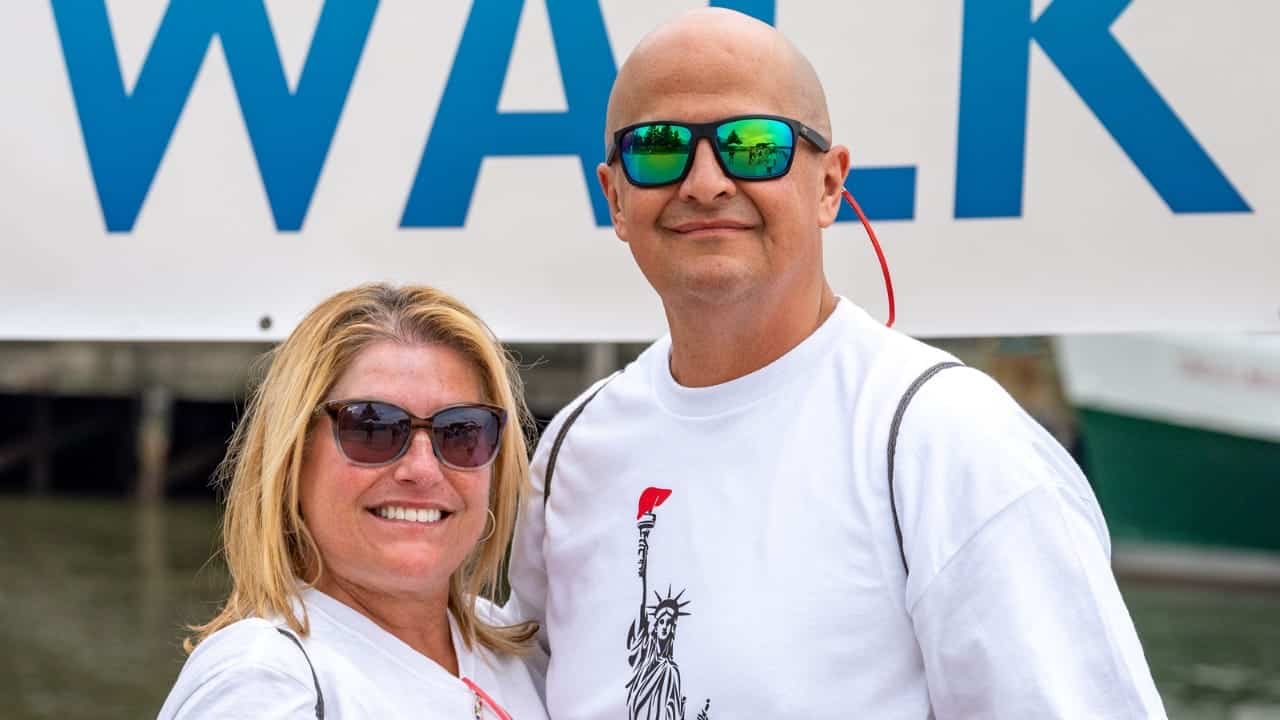Caregiver Resources

The Role of a Caregiver
Caregivers are responsible for the physical care and emotional support of someone who can no longer care for them self due to illness, injury or disability. This often includes providing support with financial and legal affairs as well.
If you are the caregiver for someone with HE, it’s likely you’re not completely new to this role as your loved one has probably been living with some form of chronic liver disease and cirrhosis for some time now. However, HE can bring a new set of challenges to caregiving because of the affects it can have on your loved one’s cognitive, or thinking abilities. Both caregivers and care recipients report that dealing with the mental symptoms of HE can often be the most challenging.
Roles
The roles you take on as a caregiver are usually dictated by the severity of your loved one’s condition and his or her capabilities and needs. Some of the important roles you may play include:
Caretaker
- Taking care of household activities such as grocery shopping, preparing meals, cleaning, and managing finances.
- Helping with activities of daily living such as bathing and dressing.
- Managing medical care including maintaining medical records and administering or monitoring medication.
- Watching for signs and symptoms of HE progression, side effects of medication, and generally monitoring your loved one’s health condition.
- Scheduling appointments (healthcare provider, lab work, benefit enrollment)
- Coordinating or providing transportation to appointments, shopping, or visits to family and friends.
Navigator
- Learning the role that each member of the healthcare team plays in your loved one’s care and how to work within – or navigate – the healthcare system.
Communicator (and/or interpreter)
- Communicating with healthcare and social service providers on behalf of your loved one.
Listener
- Listening to your loved one and providing the necessary emotional support.
Advocate
- Promoting the interests of your loved one in all situations. This may include securing proper medical care, dealing with health insurance companies, and keeping up-to-date on current information and resources about HE.
Tips
People with liver disease may need physical, emotional, and spiritual assistance. Often these needs are met by family members or friends.
Are You a Caregiver?
Caregivers help when it is necessary. Most people who assist a family member or friend with liver disease do not think of themselves as caregivers. If you often do any of the following for a person with liver disease, you are a caregiver:
- Help with household activities such as grocery shopping, preparing meals, cleaning, lawn care, or bill paying
- Assist in personal care activities such as bathing, eating, or toileting
- Provide transportation to doctor’s appointments
- Offer advice on medical decisions
Helpful Hints for Caregivers
Many caregivers feel unprepared to help with the needs of people with liver disease and, at the same time, answer their own needs in their own lives. If you are a caregiver, here are some tips to help you manage these often conflicting demands.
- Know your rights - The Family and Medical Leave Act requires most employers to provide up to 12 weeks of unpaid, job-protected leave to care for family members. Check with your employer’s human resources department for more details.
- Be organized - Keep a journal and make a list of all the things you do to help someone with liver disease. Decide which needs you can meet and which can be handled by other people. Ask friends, family members, neighbors, and co-workers for help. Check with local community agencies, religious organizations, and hospitals or health care clinics for information on volunteer and respite care programs that may offer assistance.
- Seek support - Talk to other caregivers who will understand how you feel and may share how they manage similar situations. Talk with family members, friends, or religious leaders who will be supportive. Attend individual or group counseling. A social worker may be able to help you find support groups in your area. Some organizations offer in-person or online counseling sessions.
- Be informed - If you make healthcare decisions for a person with liver disease, use his or her health care team for medical support and guidance. With the patient’s permission, speak to the doctors, nurses, or other health care professionals. In your journal, create a list of questions and write down the answers so you can refer to them again.
- Insurance questions? - For help with insurance questions, call the patient’s insurance company. Many companies will assign case managers to answer patients’ insurance and benefits concerns, and assist with getting other health-related services.
- Be good to yourself - Take some time for you, even if it’s just a few minutes. Have coffee or dinner with friends or family, read a book, exercise, or do something you really enjoy.
- Respite care - Ask for help and try to arrange for respite care for a few hours or days.
- Relatives - Involve relatives in social support when possible.
- Healthcare professionals - Learn how to provide proper care by talking to your care-partner’s healthcare professional.
- Stay informed - Read as much information as you can.
- Cope with stress - Set aside some relaxation time on a daily basis or learn what helps you cope with the stress.
- Daily Schedule - Try to follow a daily schedule to avoid disruption for you and your care-partner.
- Go easy on yourself - No one is perfect.
- Keep a log - Track your care-partner’s needs and your responsibilities (not any health changes or concerns).
- Care for yourself - You are better able to care for someone else when you are at your best.
- Essential phone numbers - Keep handy a list of essential phone numbers.
- Patience - Be patient with one another.
- Be honest - If you are uncomfortable or unsure, speak up and talk it through.
- Communication is key - Sometimes conversations can be difficult, but avoiding subjects will be more stressful.
- Determine your limits - Know your comfort level with providing care at home.
- Stay positive - Seek out joy in your relationships. Add fun to the routine by singing, sharing and anything to focus on the positive.
- Call the American Liver Foundation Help Line… (800-GO-LIVER, 800-465-4837) with questions or just to talk and get support.
- Share your story - Don’t be timid about sharing your story. Your perspective will help others. You can share your story here.
- Involve your care-partner - Ask your care-partner for input on activities, food, family outings, etc.
- Be prepared and be organized - Thinking ahead will reduce your stress.
- Start a personal journal - It doesn’t have to be handwritten, you can use the computer.
- Back-up - Create a back-up team and train them.
Support
As your loved one’s condition changes so will the roles you take on as a caregiver. Sometimes people find they are called upon to perform duties for which they are unprepared. Certain tasks may feel overwhelming. But there is help available. Many organizations offer caregiver training and resources to help you learn to do things safely and efficiently. And while most of these resources are not specific to people with HE, you’ll still find many tips and tools of value.
- Caregiver.com, website at www.caregiver.com
A website and accompanying digital magazine that provides a variety of general information, tools, resources for all types of caregivers. - AARP, website at www.aarp.org
Offers free webinars, caregiver discussion groups, an online health record, a care provider locater to find home health care and other services near you, and many comprehensive educational resources. Their toll-free Caregivers Support Line is 1-877-333-5885. - American Red Cross, website at www.redcross.org
Offers a nine-module training program for caregivers or you can contact your local Red Cross chapter for information about community-based programs. - Family Caregiver Alliance, website at www.caregiver.org
The FCA National Center on Caregiving provides Fact Sheets, discussion groups, telephone conferences and the Family Care Navigator, which provides state-by-state information on caregiving resources. - National Family Caregiver Association, website at www.caregiveraction.org/
Provides education, peer support and online resources. - Sharing the Journey, an ALF Support Network for Caregivers, website at https://liverfoundation.org/events/sharing-the-journey-an-alf-support-network-for-caregivers/
In addition to investigating these organizations, speak to your loved one’s healthcare providers if you need help. Medicare (and in some states Medicaid) will pay for certain types of caregiver education if it’s provided as part of a patient’s medically necessary in-home visit.
In-Home Nursing
The American Liver Foundation recognizes the need for professional healthcare assistance in the form of in-home nursing. As a caregiver your knowledge of your patient’s condition may be limited and therefore you may require more professional assistance. ALF provides these alternatives as an aide in your search for in-home nursing. ALF doesn’t endorse any of these, but simply provides you with the access to them so that you can make your own decisions about which service may be right for you and your patient.

ElevatingHOME & VNAA Find A Provider Resource
The exclusive ElevatingHOME & VNAA Find A Provider Resource allows members of the public to locate high quality home health and hospice care providers in their area. ElevatingHOME & VNAA require members to meet high quality standards such as three or more star ratings in Home Health Compare and Hospice Compare and either state, ACHC, CHAP or the Joint Commission accreditation.

Visiting Nurse Association
Backed by a tradition of nursing, VNA continues to provide expertise, perspective, innovative leadership and solutions around the health issues of the day. Our compassionate team of healthcare professionals is dedicated to serving individuals at home and across the community — no matter their age, station in life or available resources.

VNA Health Group
Visiting Nurse Association Health Group is New Jersey’s largest and most trusted not-for-profit provider of home health, visiting physicians, hospice and community-based care.
Big changes in health care policy and population demographics are occurring nationally. With our unique business model as a post-acute and community-based health care provider and our long-standing commitment to quality care, VNA Health Group is the provider of choice for both families and the doctors who refer them.
Our newly formed research and innovation institutes are advancing new models of care while our strong partnerships with the region’s leading health systems bring together a network of clinical expertise focused on helping you achieve your best level of health.

Comfort Keepers
We understand that the demands of daily living are often moving targets. No two situations are ever alike. That’s why Comfort Keepers® creates custom home service plans to meet your family’s needs. Our caregivers receive rigorous training geared to enrich lives and form strong bonds. At all our locations, these trustworthy relationships are the standard of care.
Brochures
Related Links
Thanks to some pretty terrific organizations like the AARP and others specifically designed around caregiving, the American Liver Foundation can help you by providing access to these resources and giving you a head start with your task of caring for a loved one with liver disease.
- The Caregiver’s Handbook
- Today’s Caregiver
- Caregiver 101
- Care for the Caregiver
- Long Distance Caregiving
- Long Term Care
- Medication Management
- Prepare to Care: A Caregiving Planning Guide for Families
- Help for First Time Caregivers
- Caregiving Q&A
- Online Caregiving Forum
- Meditations for Caregivers
- Juggling Life, Work & Caregiving
- Family Caregiver Alliance
- The Caregivers Action Network
Caregiver Stories
Last updated on March 13th, 2024 at 09:54 am





